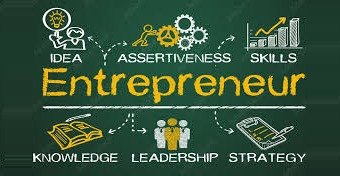by: Dr. Muhammad Nawaz Iqbal
Changing the primary perspective of engineering students is the foundational step in promoting entrepreneurship in engineering education.
Beyond acquiring skills, students should learn to approach problems as innovators—spotting gaps and imagining possible solutions. As a result, they begin focusing on formulating meaningful problems worth solving, which is a core aspect of entrepreneurship.
To cultivate this mindset, curriculum development should incorporate real-world, ambiguous situations. Educators should draw from industry, societal, and technological challenges to design problems with no single correct solution. This approach trains students to embrace uncertainty and apply inventive problem-solving as they work toward solutions.
Project-based learning is particularly effective in fostering entrepreneurial skills. When students are given multidisciplinary projects, they must collaborate, generate ideas, and iterate on improvements. This enables them to understand the delicate balance engineers must strike between functional requirements, client needs, costs, and market constraints.
Using case studies in entrepreneurship courses helps bridge the gap between theoretical knowledge and its practical application. Exploring the successes and failures of engineer-led startups helps students learn about scalability, pivoting, and value proposition design. This method also allows students to relate more closely to entrepreneurial thinking and see it as grounded in real-world experience.
Facilitating collaborative efforts between engineers and business professionals is another effective method of promoting entrepreneurial thinking. Courses jointly offered by engineering and business departments, as well as shared labs and startup incubators, can expose students to business models, customer engagement, and venture creation. This gives engineering students a broader perspective on innovation and boosts their confidence in launching or co-launching ventures.
Assessment methods must also evolve to support entrepreneurial education. Traditional exams test memory, but not creativity, decision-making, or risk-taking. Educators should incorporate pitch presentations, startup simulations, and reflective journals to help students think and express themselves like entrepreneurs.
Having a mentor significantly enhances students’ entrepreneurial abilities. Direct interaction with startup founders, industry disruptors, and engineering entrepreneurs provides invaluable insights and encouragement. These relationships help students clarify their own goals and understand the real challenges of entrepreneurship.
Universities should provide facilities that foster entrepreneurship within engineering departments. Innovation centers, maker labs, and prototype workshops enable students to bring their ideas to life—regardless of financial background. Competitions such as hackathons, idea sprints, and pitch contests simulate real business dynamics and encourage fast thinking, interdisciplinary collaboration, and public communication.
Cross-cultural exposure also enhances entrepreneurial perspective. International exchange programs, global innovation competitions, and virtual collaborative projects expose students to diverse markets and user needs. This global involvement enables them to develop adaptable, empathetic, and context-sensitive solutions.
Incorporating sustainability and ethics into entrepreneurial education ensures that innovation generates both profit and positive impact. When students are trained to evaluate the environmental, social, and ethical implications of their ideas, they are more likely to pursue lasting and responsible ventures.
Storytelling is a vital skill for communicating complex engineering ideas to non-technical audiences. Storytelling training helps engineers craft compelling narratives, which are essential for pitching ideas, attracting users, and inspiring teams.
Artificial intelligence and data analytics are increasingly important in entrepreneurial education. Engineer-entrepreneurs who understand how to leverage data can make smarter design decisions, better understand user behavior, and identify trends that drive disruptive innovation.
Failure is a vital learning experience in entrepreneurship. Students should be encouraged to experiment without fear of poor academic consequences. Reframing failure as a step in iteration builds resilience, adaptability, and a positive mindset—core traits of successful entrepreneurs.
Involving successful alumni helps sustain student interest in entrepreneurship. Alumni can participate in guest lectures, mentorship, and workshops, sharing practical insights grounded in their own engineering and entrepreneurial experiences.
Finally, universities must institutionalize entrepreneurial thinking by adapting policies to support innovation. This includes offering flexible credit options for entrepreneurship, providing assistance with intellectual property, and supporting startup incubation. Innovation should be valued on par with academic excellence.
The ultimate goal of fostering entrepreneurial thinking in engineering education is to cultivate a culture of curiosity, risk-taking, and value creation. This prepares engineers not just to build products, but to lead innovation and shape the future.


